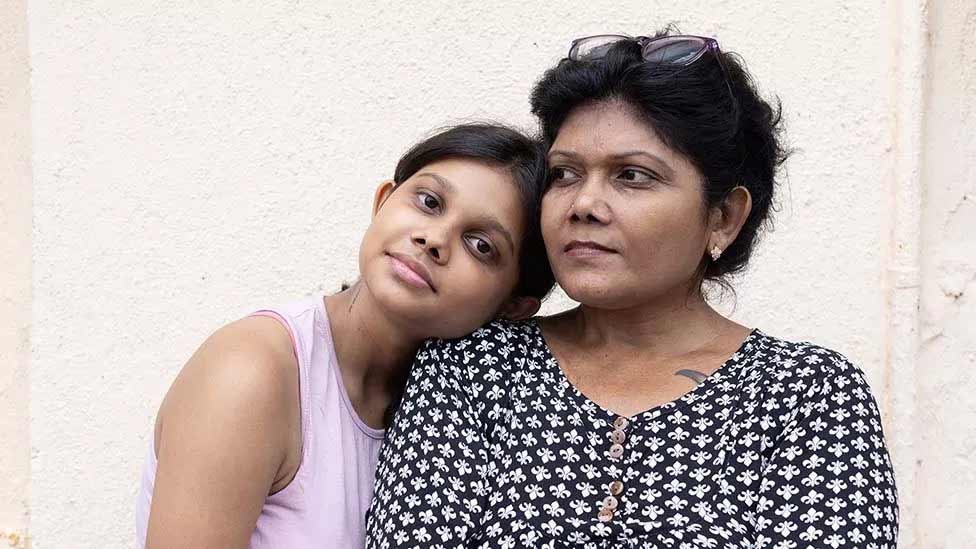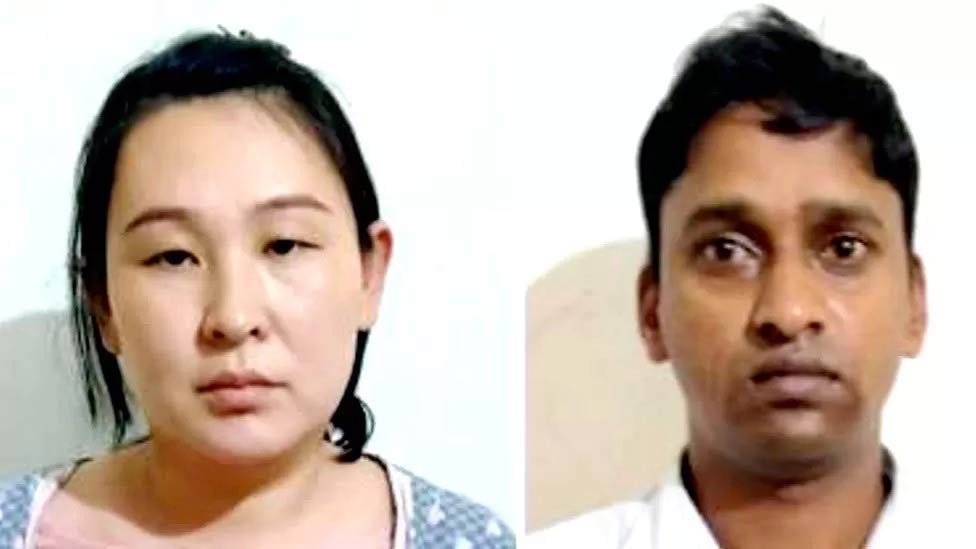People in India and other nations in Asia, Africa, and Latin America are being duped and humiliated by a blackmail scheme that uses rapid lending apps. At least 60 Indians have committed suicide as a result of harassment and threats. A BBC undercover investigation has shown those in China and India who are making money off of this scam.
Astha Sinhaa was awakened by her aunt’s frantic phone call. “Don’t let your mother leave the house.”

Half sleeping, the 17-year-old was scared to discover her distraught mother Bhoomi Sinhaa in the next room.
The Fall Into Scam
Bhoomi’s story is one of hundreds in India and beyond who have fallen victim to a callous, international fraud whose vicious perpetrators use extortion and humiliation to line their own coffers. The horrible plan is ruthlessly simple in how it works.

The Insidious Tactics of the Scam
Many lending applications offer simple loans in a matter of minutes. Not all of them are predatory, but a sizable percentage, once installed, covertly collect your contacts, pictures, and ID cards and use this data for malicious purposes. The information gathered is forwarded to a call center where young gig economy agents are taught to harass and humiliate people into submission while equipped with laptops and phones when borrowers fail to meet payback deadlines, or occasionally even when they do.
We’re now on WhatsApp. Click to join.
Bhoomi’s Journey into the Scam
By the end of 2021, Bhoomi had borrowed around 47,000 rupees ($565; £463) from multiple loan applications as she awaited the arrival of job expenditures. Although the money was received nearly quickly, there were significant costs that had to be paid. She borrowed money from several different apps over the course of just seven days, and her debts quickly grew to an astounding two million rupees ($24,000; £19,655).
The recovery agents then appeared, quickly changing from constant reminders to ruthless tormentors who hurled insults and abuse at Bhoomi. They falsely claimed she was lying even after she had paid them. They threatened her mercilessly, making up to 200 calls a day, and as a warning, they even started sending her pictures of dead bodies.
The Constant Torture
They threatened to reveal Bhoomi as a thief and a whore to all 486 of her connections as the harassment got worse. Bhoomi was terrified and unable to sleep because of the possibility of ruining her daughter’s reputation.

Desperate, she applied for 69 loans, taking out loans from friends, relatives, and other sources. With the hope that morning would never come, nights were a living nightmare. But every time, at 7:00, her phone started to beep and ping nonstop.
Bhoomi was able to pay off all of her bills, but one app, Asan Loan, insisted on continuing to phone nonstop. She was so worn out and damaged that she lost her ability to focus at work and started having panic attacks.
The End of All Hopes
One fateful day, a coworker called Bhoomi over to his desk and displayed a revolting photo of her on his phone that had been graphic and edited, looking disgusted and ashamed. Asan Loan forwarded it to every contact on her phone. Bhoomi was thinking of killing herself at this point.
Suicide Cases
This tragic tale is hardly the only one. These predatory lending applications have directly contributed to a spate of suicides in India. The majority of the victims are in their 20s and 30s; they include a fireman, a Grammy-winning singer, young parents who leave behind children ages three and five, and even a grandpa and grandson who were both victims of lending applications. Surprisingly, four lives were lost before they could completely blossom; several of the deceased were teens.
The Unknown Offender
Many victims of this fraud are afraid to speak up because of the stigma attached to it, therefore their misery is kept to themselves. The criminals have remained anonymous since they have operated in the background. Before the BBC was able to discover a young guy who had worked as a debt recovery agent for call centers connected to several loan applications, it required months of tenaciously looking for an insider.
The suffering he had seen throughout his time was revealed by Rohan, who was not using his true name. Many of his customers sobbed some made life-ending threats, and the weight of these upsetting incidents tormented him. Rohan volunteered to help the BBC reveal the inner workings of this evil plan after being moved by his conscience.
Exposing the Scammers
In order to do weeks of covert filming, Rohan decided to infiltrate Majesty Legal Services and Callflex Corporation, two distinct call centers. His tapes shockingly documented over 100 instances of harassment and abuse, exposing for the first time the systematic nature of extortion

The most horrifying mistreatment took place at Callflex Corporation, which is located just outside of Delhi. Here, agents frequently used vulgar language to intimidate and degrade debtors. It is alarming to see that Vishal Chaurasia was one of the call center supervisors who oversaw and coordinated this activity.
Identifying the Blueprint of the Scam
Chaurasia revealed the details of the scam’s workings without realizing Rohan was recording their chat. Customers grant the app access to their phone’s contacts when they apply for a loan. Then, Callflex Corporation is hired to get the money back. When a payment is not made on time, the business starts a harassment campaign against the borrower and everyone associated with them. Chaurasia said that his employees will use any strategy to be paid, no matter how cruel or humiliating.
“The customer then pays because of the shame,” Chaurasia frankly said. “You’ll find at least one person in his contact list who can destroy his life.”
The Story Of Kirni Mounika
One of the tragic tales involves Kirni Mounika, a public servant who was 24 years old and had a bright future. The only student at her school to earn a government position, Mounika was adored by her three brothers and had a supportive father who was willing to help her pursue a master’s degree in Australia.
It would be her last, though, on that fateful Monday when she started out on her routine scooter journey to work. She was beaming that day, according to her father, Kirni Bhoopani.
The shocking fact that Mounika had borrowed from 55 separate lending apps, starting with a loan of 10,000 rupees ($120; £100), spiraling to nearly 30 times that amount, was only revealed when authorities examined Mounika’s phone and bank data. By the time she made the decision to commit suicide, she had paid back more than 300,000 rupees ($3,600; £2,960).
The Whistleblower’s Problems
A guy named Hari, who had worked in a call center that specialized in loan recovery, struggles with his own culpability in the wake of Mounika’s tragic death. Although he claims he didn’t make any abusive calls, he confesses that management pressured him to use harsh methods against debtors. The agents under his direction went beyond simple harassment, accusing debtors and their associates of being liars and crooks.
A Tragedy and Abuse Cycle
Hari recognizes the crucial part that reputation plays in borrowers’ lives. These extortionists use threats to disclose their financial struggles and damage their reputations into effective tools. When a payment is made, an alert with the words “Success!” signals the agents to go on to the next victim. Tragically, the borrower’s frantic threats to kill themselves were unanswered until the horrors that were certain to happen started to happen.
The Clever Criminal Minds
There is a powerful individual named Parshuram Takve at the center of this predatory network. His callous instructions and unyielding pursuit of restitution create a bleak picture of the malice at work. Hari specifically remembers moments when the software interface of this nefarious operation mysteriously changed to Chinese, hiding the network’s actual extent.
China’s Connection
The inquiry focuses attention on Li Xiang, an enigmatic Chinese billionaire. His company’s brutal tactics have drawn criticism, and Indian police raids that led to the freezing of their bank accounts have raised questions about them. Li Xiang, who is not present online, openly acknowledged that his firm works in Colombia, Mexico, and India, taking advantage of local laws and regulations to increase profits.
Identifying Predatory Techniques
The brutal approach to loan recovery used by Li Xiang is made clear. He uses WhatsApp, SMS, and calls as part of his strategy to threaten debtors and the people they know. The stunning admission that lenders have access to their phone logs and private data further emphasizes how sophisticated this exploitative scam is.
The Cost of Shame on People
Bhoomi Sinha, a survivor of this heinous tragedy, struggles with psychological suffering that goes beyond simple teasing, threatening behavior, and tiredness. When they connected her to a sexual photograph, her tormentors went too far. She suffered a terrible loss of self-respect, morals, and dignity as a result of the embarrassment she felt. Her reputation and way of life were permanently damaged when the picture was shown to a large number of people, including attorneys, architects, government officials, and elderly relatives.
The Search for Justice

Asan Loan, Liang Tian Tian, and Parshuram Takve, who are both in hiding, are given the accusations made against the offenders. Unfortunately, neither the business nor the couple reacted to the charges.
Conclusion
The terrifying story of loan app scams reveals the dark side of a business that preys on unsuspecting consumers. The heartbreaking accounts of victims and informants brought to light the tremendous pain caused by this evil network. The bravery and tenacity of survivors like Bhoomi Sinha serve as a light of hope as the criminals, including brutal masterminds and a secret Chinese link, continue to elude punishment. In the midst of these difficult circumstances, their pursuit of justice and the support of their communities provide some measure of consolation. It continues to serve as a sobering reminder of the essential need for legal action and group initiatives to protect people from such sneaky financial scams.